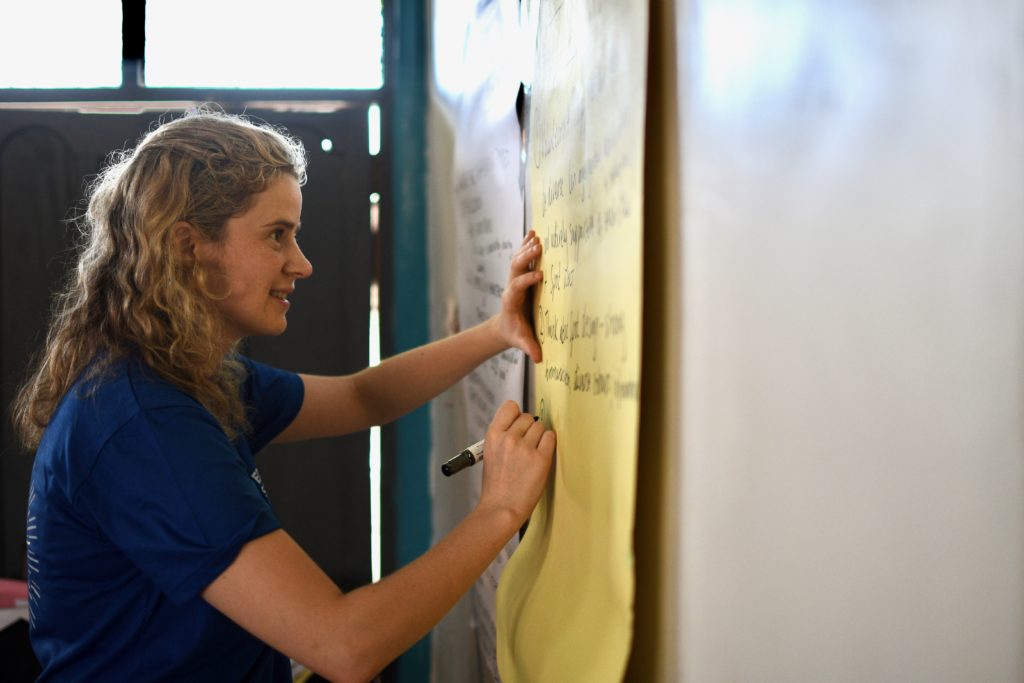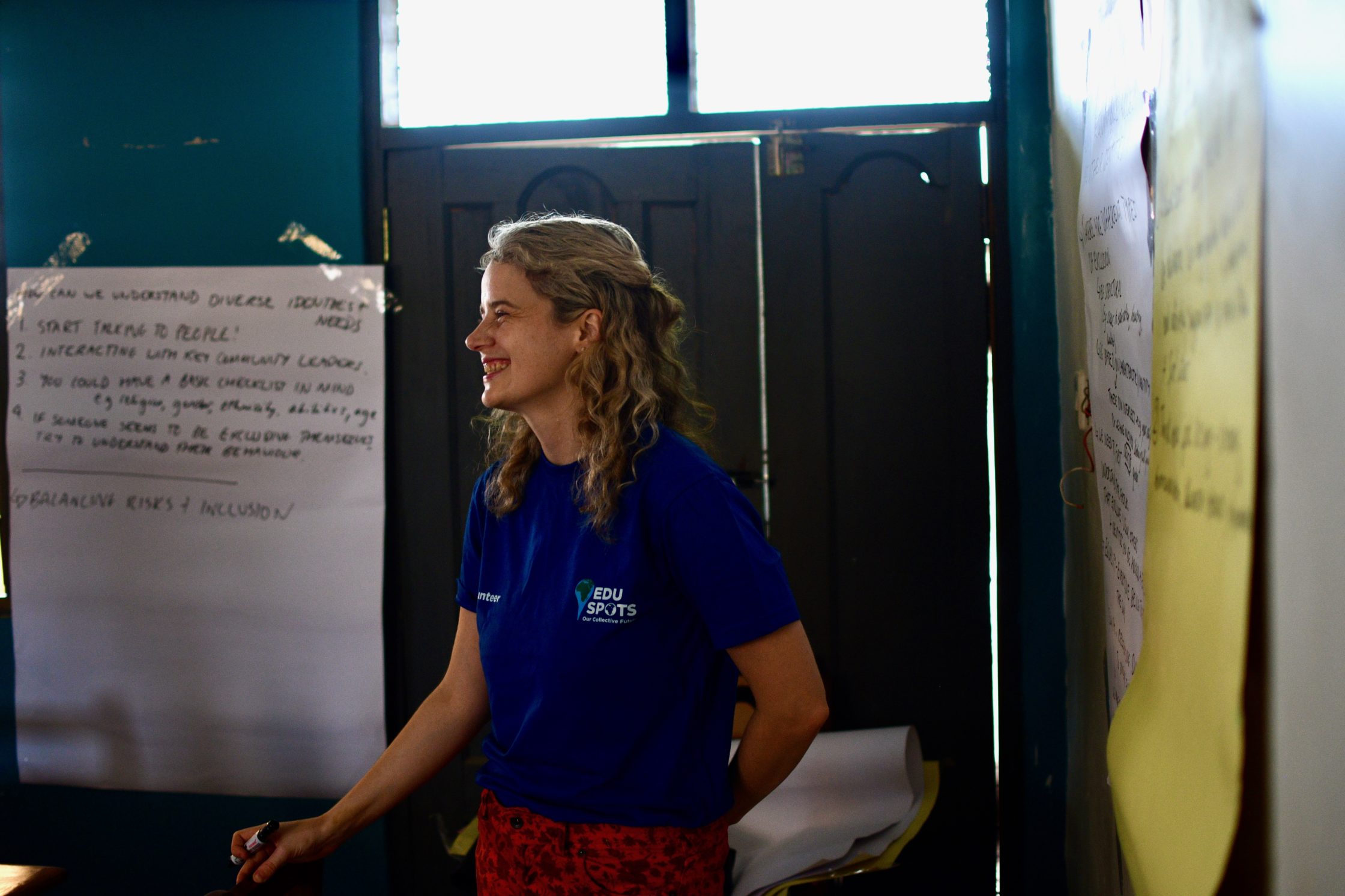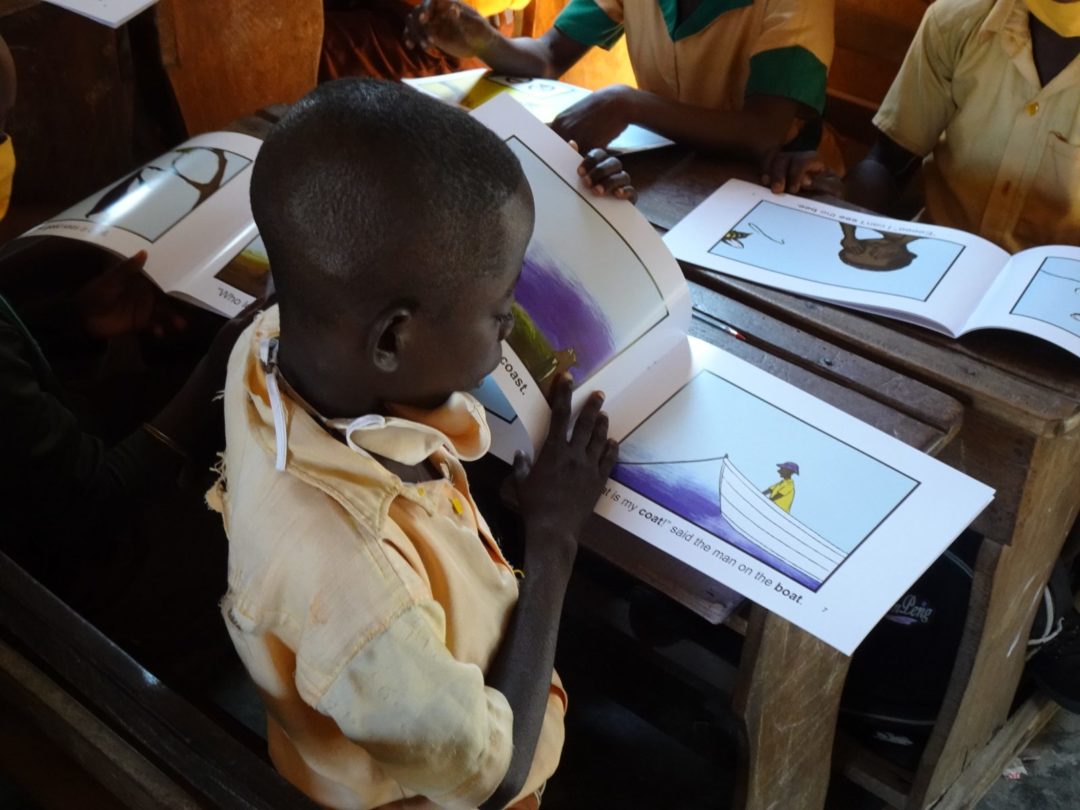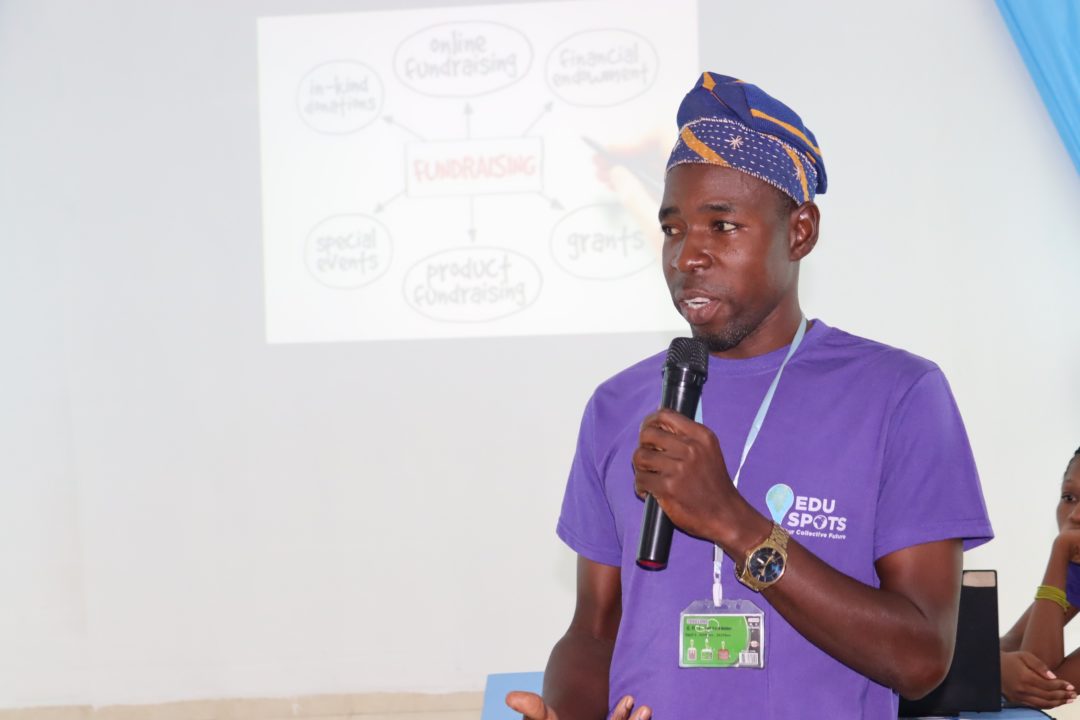When I was a child I often used to say that I have ‘all the energy in the world’ and think I’ve possibly always taken a certain pride in initiating non-stop activity, actively disliking periods of rest. I know my EduSpots team and school colleagues often laugh at my relentless energy and sometimes [annoying!] over-abundance of ideas sharing.
However, since late 2020 and more severely since September 2021, things have changed. I seem to have developed chronic fatigue syndrome which doctors have concluded has come from a virus – an epic cocktail of glandular fever, Covid and malaria.
I think, before, I had imagined fatigue syndromes to involve feeling sleepy and doing a lot of napping, but in fact I often struggle to sleep despite feeling physically and mentally exhausted a lot of the time. For me, it seems to be about needing to manage my energy through a very careful balancing act, which often seems like a constant trial and error process.
I’m sure this also reflects the experience of others, particularly in the long Covid context. I hope that by sharing this I’m building wider understanding, and that my positive learnings from this, and suggestions on how chronic fatigue syndrome can become a ‘friend’ in some way, might also give a form of reflection to others that is helpful.
It’s also given me some really deep learnings for the field of education more widely, and I really believe it will make me a much more inclusive educator.
The nature of the beast!
So there are three features of this thing – which all seem to be worse in the UK, for me: being in Ghana seems to heal me quite a bit!
- The fluey breakfast
- The brain shrinker
- The monster attack
I wake up with symptoms of flu that last for a few hours – sore throat, swollen glands, feeling hot and general brain fog. My muscles ache and I just feel generally weak, with reduced feeling in one side of my face and tongue too.
The main thing that frustrates me is the impact on my cognitive functioning – poor short-term memory and processing skills, inability to concentrate for longer than short bursts and really struggling with conversations requiring information exchange or deep thinking – to the extent that I often have to leave conversations and meetings and take breaks. I mix things up a lot.
It can feel like large aspects of my character keep being squashed by some kind of monster sitting inside me, ready to hold me back every time I try to reach back to normality. When I have moments of feeling myself, I then start acting normally – this can then at worst lead to quite frightening periods of brain freeze where I can become immobilized for some minutes, or otherwise I can crash a day or two later and have even ended up in A & E a few times with some pretty weird symptoms.
I guess maybe the most challenging thing is that my new ‘friend’ is chronic and invisible – it’s sitting with me every day for months but unseen other than looking a bit pale. Usually when I’m out, I’m feeling more energetic, and have to balance this with breaks that are best described as periods of meditation – shutting my eyes and reducing sensory inputs.
It is easy to mask for short periods when I’m aware I appear normal which I’m sure confuses everyone – especially given a smiley and upbeat demeanour, which I’m trying to continue!
Learnings
Although of course I wish this had not happened, I try to frame experience through a lens of thinking that something positive can come from many of life’s challenges, and that life can come in phases where you have to go into hibernations of some forms. These are some of the things l’m grateful to have learnt:
1. New respect for teachers
I’m now very much more in awe of teachers and all they usually manage to do in their weeks and the energy that this expends! Having had to take a little time away from a formal classroom setting, due to the exhaustion teaching interactions can lead to, this has made me really appreciate the work of teachers even more – and also really value my own work in the classroom, whether with students or adults.
2. Awareness of need for inclusive practices
I’m much more aware of inclusion in society and practices that might us help ensure that we better understand the needs of people around us, and prioritise steps to ensure everyone can take an active part in society. I have become aware how inaccessible the world can be. I found myself unable to cope with meetings at work and spending days by myself in isolation to avoid further brain fatigue.
I’ve learnt that small acts of empathy and understanding can really make the world of difference, and I have so much appreciated my amazing colleagues (and students!) who have taken the time to understand and help me out. I now see even more clearly see how well-being has to be embedded into all systems and educational programmes, and hope I am now equipped with a stronger skill-set to support the well-being of others.
3. Improved communication
I think it’s the first time in my life I’ve not been able to continue by myself without asking for help. I have had to become much better at communicating my own needs and have started to encourage others to do the same.
It’s also made me think: do we give students these skills in communicating pastoral needs in a school setting?
I’ve also learnt how simple comments, although meant well, like ‘hope you’re feeling better now’, can start to grate a little when you have a long-term health problem, and change is extremely gradual. I did find that people expected a swift recovery, and this did heighten my sense of personal disappointment at my slow recovery at times.
4. New systems for organisation
Linked to this, I’ve been forced to develop new systems for organising myself and my work. I used to have a pretty razor sharp memory, and used to proudly state in my early years as a teacher that I didn’t need to have a diary, as I could visualise my calendar. Now, I need to write everything down in to do lists, otherwise I quickly forget what people have asked of me. I often forget by the end of a conversation, what was said at the start! I believe this will all make me more organised in the longer term.
5. Becoming more adaptable
I’ve become used to having to drop out of things, and have had to reduce my expectations, which has given me greater enjoyment of my work and wider educational and social activities when they do happen. In particular, moments where I’ve been able to lead training sessions, online talks or interactions with students have been golden.
My life feels a bit like a series of cancellations, but I’ve built acceptance of this into my way of thinking. If I need to go home for the day then that’s what needs to happen, regardless if I feel that I’m letting others down. I’ve seen that we need to plan for the future but also for the moment.
6. Improved stress management
This has also been a great tool for learning about stress management. This is simply because when I get stressed my body often has a significant physical reaction – my glands seem to swell, my brain feels a strong sense of pressure and I can even lose feeling in half my face. I now really live the saying that “you can’t control what happens to you, but you can control how you respond”. Admittedly, it would be great if I could have learnt this without the side effects, but I definitely learnt a new art of calmness!
7. Enjoying my own company
Although I can suffer from extreme boredom and frustration as I can’t pursue my education-focused hobbies to the same degree, I’ve started to enjoy my own company a lot more, and have become more self-sufficient. This is because when I’m alone I’m able to control everything that happens around me, whereas even conversations and talking to people can drain me significantly.
8. Letting go
I’ve learnt that you can’t control what everyone thinks. Let go. I’m very aware that some people might not understand why I’m able to do some things and not others – or why I appear fine one minute and disappear the next.
I realize that it’s not my role to educate the whole of society on chronic fatigue and that I can only be who I am and do me best to stay positive and helpful to others whilst this rides its course.
Similarly, this has helped me handle feelings of often feeling that most people do not understand my work with EduSpots and wider educational advocacy – I cannot control the mindsets of those who choose not to fully engage in the ideas behind it or don’t reach out to join a conversation.
9. Gratitude
I have a very deep sense of gratitude for all the many people who have actively supported me during this period or reached out or simply been understanding. If you are reading this, thank you – your support has meant the world to me. However I come through this, I’m sure it will be wiser. As someone once said to me:
“challenging experiences can really stimulate great leadership growth as you are building lived experience that can open up paths of deeper connection to others”.




3 Comments
You’ re a fighter ! Thank you for this inspiring story!
I’m sure your words will help others, Cat. Lovely to see the Ghana photos.
You truly are an inspiration Cat. I wish you a full recovery and know that you will continue to spend your life helping others